Books
Books
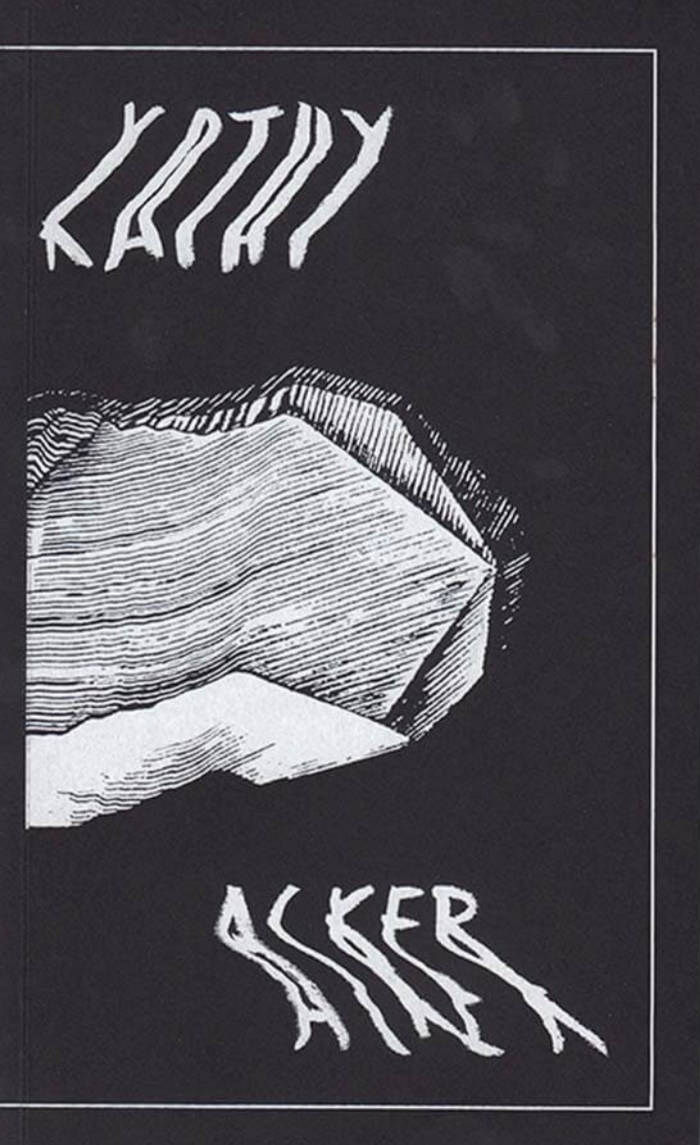
Kathy Acker (1971-1975)
First critical edition of Kathy Acker’s unpublished early writings from (1969-1976). Comprises almost all the typescripts from that period present in the Kathy Acker’s archives. Features also the transcription and presentation of Acker’s two 1974 experimental videos.
Editor: Justin Gajoux. Critical notes: Justin Gajoux & Claire Finch. Also with texts of: Alan Sondheim, Emily Cheng, Jill Kroesen, Peter Gordon, Claire Finch, Anna Maria Pinaka, Matias Viegener, Justin Gajoux.
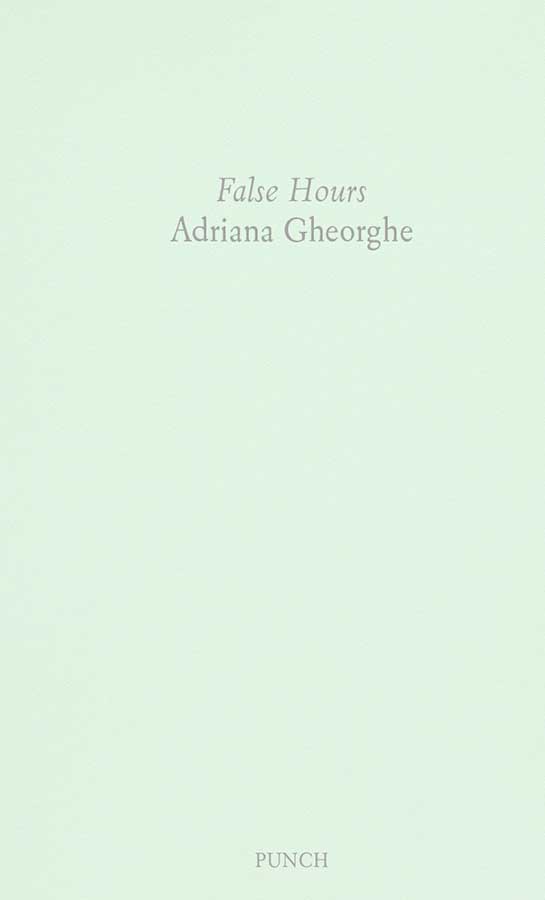
False Hours
Adriana Gheorghe works with performance and writing and a gravely irreverent sense of indeterminacy, while in relation to contexts (conceptual, physical, political, human), and for the reformulation of the same ongoing artistic and living practice – the performative imagining of the humans in relation to language and representation, hijacking subjectivity and identity with the crack of endless potentiality.

Square of Will in Square of Love
A collection of texts, notes and drawings from Alina Popa (1982-2019), edited as a tribute publication by her longtime accomplice, the artist Florin Flueras. A political and theoretical work that questioned both the intimate and social mechanisms of the contemporary.
Square of Will in Square of Love gathers a selection of texts, notes and drawings by Alina Popa, edited by Florin Flueras. Most texts are more poetic and more personal than Alina’s previously published writing, “...a mixture of styles, subjects and mediums—theory, poetry, drawings, diary notes, it's unclassifiable, as she liked it.” (Florin Flueras).
Alina Popa (1982-2019) was a Romanian artist who moved between choreography, theory, and contemporary art.

Corner Vol. 1
Paul Breazu, Raluca Voinea and 2 more
CORNER football+society VOL.1 comprises all contributions from the first six issues of the eponymous artist-run magazine, published in Romanian between 20015-2017.
With texts and conversations by: Mihnea Anţilă, Octav Avramescu, Violeta Beclea-Szekely, Matei Bejenaru, Declan Clarke, Irina Costache, Ion Dumitrescu, Florin Flueras, Bogdan Ghiu, Christopher Johnson, Cosima Opârtan, Florin Oprea, V. Leac, Andrei Mihail, Vasile Mihalache, Anca Verona Mihuleţ, Petrica Mogoş, James Montague, Cat Năstăsoiu, Pompiliu Nicolae-Constantin, Alexandra Pirici, Florin Poenaru, Ovidiu Pop, Powerpuff, Corneliu Porumboiu, Anamaria Pravicencu, Claudiu Revnic, Matei Sâmihaian, Ben Shave, Ştefan Tiron, Ovidiu Ţichindeleanu and artworks by: Enric Fort Ballester, Alex Bodea, Irina Botea + Jon Dean, Ion Grigorescu, Hortensia Mi Kafchin, Cătălin Mihalache, Monotremu, Dan Perjovschi, Alexandra Pirici & Jonas Lund, Raluca Popa, Gabriele de Santis, Sergiu Sas.
CORNER fotbal + societate is a periodical publication that proposes a crossdisciplinary approach, taking football and its complex contemporary and historical context as a starting point. This material foregrounds less (re)presented subjects and follows its evolution and social determinations. Aiming to intersect the culture of sport with various fields of knowledge such as anthropology, art, contemporary dance, architecture and economics, it follows less discussed aspects such as horizontal organisation, representation of minorities, gender power relations, subcultures and the relationship between the individual, group and society - amongst other topics. Under the current conditions, where both sport and art are being confiscated by the media and transformed into commodities, CORNER reclaims the democratic and emancipatory aspects of football, alongside a critical analysis of its functioning and reception modes.

Spread Wide
Rebecca Stevens, John Cussans and 2 more
Various artists and authors use two writers' correspondence as a primary source to develop an artistic and literary falsification. In this collaborative volume, the writer and artist Paul Buck works with the late 29 Kathy Acker. Using as source the raw materials of their correspondence from the early Eighties, a period when Acker was writing Great Expectations and trying to leave America for London, Buck confronts issues of appropriation, sampling, and plagiarism, relevant then and now.
Further encounters are triggered by writer Rebecca Stephens, artist John Cussans... and playwright Richard Foreman, artist Susan Hiller, musician David Coulter. Kathy Acker (1947-1997) was at the forefront of transgressive writing from the Seventies until her death. Her provocative intertextual narratives—halfway between autobiography and pornography—were developed in lectures, performances and films (Variety, Bette Gordon).
Her published work includes Blood and Guts in High School (1984), Don Quixote (1986), and Empire of the Senseless (1988). Rebecca Stephens escaped the chains of theology teaching to write on Saints and Courtesans, subjects on which books are in the pipeline.
John Cussans is a writer, artist and researcher who has exhibited regularly in London, Berlin, Slovenia, Vienna, Vancouver. In 2001 he founded The Bughouse, an art-event generator inspired by the work of Philip K. Dick. Paul Buck (born 1942, United Kingdom) is a British poet, performer and author of more than fifty crime novels. He has been challenging notions of writing, narrative, and the limits of the feasible since the late Sixties in books like The Honeymoon Killers, Violations and Lust, Walking into Myself... Chief editor of Curtains magazine, he introduced many French authors to the English audience.

Aftershow
A monograph / artists' book that engages with the recent film installations of Pauline Boudry / Renate Lorenz. Installation shots, research material, scripts, and film stills give an insight into the artists' investigation of performance in film and their dense net of references to experimental film, the history of photography, sound, and underground (drag) performances.
The book's title alludes to an interest in opaque events that are belated, left backstage or off-screen. A number of (fictitious) letters to friends and collaborators such as Sharon Hayes, Yvonne Rainer, Ginger Brooks-Takahashi, and Jack Smith place the work of Boudry & Lorenz in a context of debates around temporalities, activism, the archival, decolonizing practices, and queer histories. Published following the exhibition “Patriarchal Poetry” at the Badischer Kunstverein, September 27– November 24, 2013.

I Want
I Want reviews the eponymous duo's double-projection film installation examining issues of gender, sexuality and performativity—and inspired by the words of punk poetess Kathy Acker and convicted whistle-blower Chelsea Manning. This publication documents the major film installation I Want (2015) by collaborative artists Pauline Boudry and Renate Lorenz, which was presented at their 2015 solo exhibitions at Kunsthalle Zürich and Nottingham Contemporary.
The double-projection film installation is based on a script that borrows texts from American punk-poet Kathy Acker (1947-1997), as well as chats and materials by convicted whistle-blower Chelsea Manning that speak of her reasons for revealing nearly one million secret military and diplomatic documents through WikiLeaks, at the same time exposing her transgender identity to her superiors.
Through poetic gestures of appropriation and recombination, Boudry and Lorenz examine issues around gender, sexuality, the performance of identity, and the nature of collaboration. Alongside generous color documentation, written contributions by Gregg Bordowitz, Laura Guy, Dean Spade, and Craig Willse unpack and reflect upon both the historical context and contemporary significance of this multivalent work.
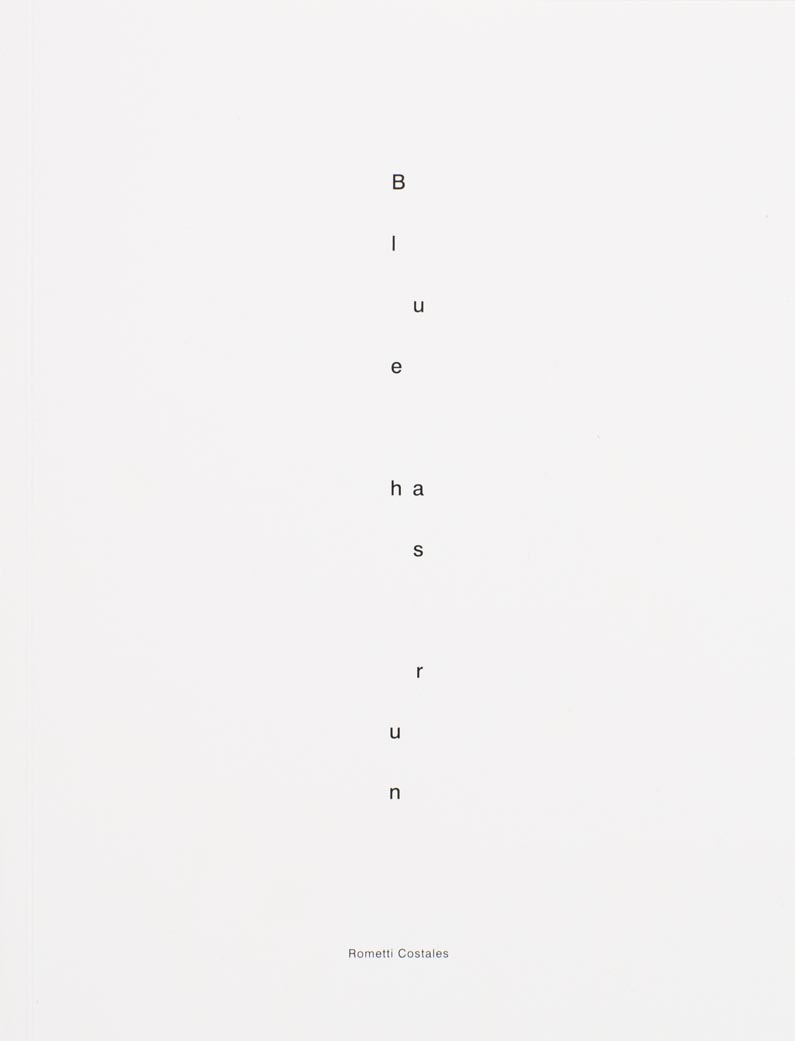
Blue Has Run
Blue has run is an intervened facsimile of A Catalog of Textiles and Folkart of Chiapas by the anthropologist Walter F. Morris, published in 1979. The original publication was printed in 100 copies, most of which have been lost or dispersed through various specialized libraries.
This catalog listed the items belonging to three collections of fabrics and weaving patterns in South Mexico which Walter F. Morris, called Chip, helped to constitute during mid seventies: the Pellizzi, the Pomar and the Morris Collection. Its DIY quality gives the images an almost abstract twist. This and the painstakingly precise descriptions of the items take the content of the catalog towards territories closer to poetry, drifting it away from its original purpose.
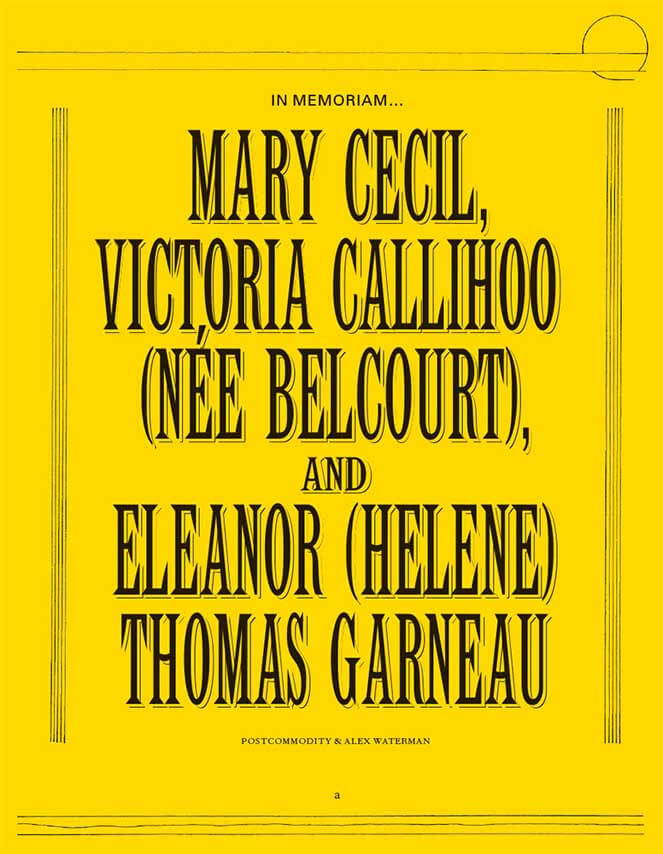
Postcommodity, Alex Waterman and Ociciwan: “in memoriam…”
Ociciwan Contemporary Art Collective
Eighty-page programme book score, and libretto, for performances by Indigenous musicians of in memoriam…Mary Cecil,Victoria Callihoo (née Belcourt), and Eleanor (Helene) Thomas Garneau and Robert Ashley’s in memoriam... Curated and edited by Ociciwan Contemporary Art Collective.
[from back cover] …in memoriam Mary Cecil,Victoria Callihoo (née Belcourt), and Eleanor (Helene) Thomas Garneau adds a new score and production by Postcommodity and Alex Waterman to a suite of four early scores by the American composer Robert Ashley. The fifth score honours the lives of Mary Cecil, Victoria Callihoo (née Belcourt), and Eleanor (Helene) Thomas Garneau, three Indigenous women from territory at the turn of the Century as it became the province of Alberta. This significant addition continues Ashley’s project investigating the connections between musical forms and constructs of historicization, opening a conversation regarding whom and how we memorialize individuals and inscribe their legacies.
[from essay by Candice Hopkins] What histories are remembered and who is doing the remembering? What form do these rememberings take? It is not as simple as taking down one monument and replacing it with another. We need to ask more questions, take note of the voids that stand in for the past, and actively make way for other voices, particularly those are trapped under the ‘sea ice of English’. “Listen for sounds”, writes the Tlingit poet and anthropologist Nora Marks Dauenhauer, “They are as important as voices. Listen. Listen. Listen. Listen.”
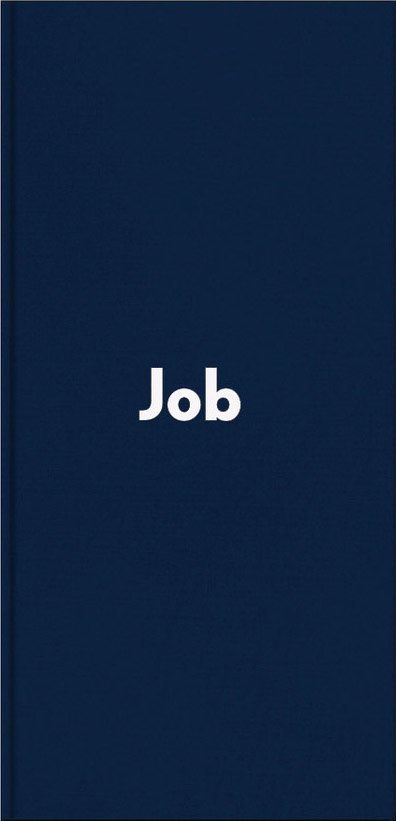
Job Interviews
“The ritual of the job interview can be considered as a courtship that’s conditioned by protocols that ask for a quite particular display: with social relations as material, a dance of conformity, the attempted imagining and echoing of expectations.”
This anthology of commissioned writing includes contributions by Nadim Abbas, Howie Chen, Heman Chong, Matthew Dickman, Jason Dodge, Angie Keefer, Holly Pester, Natasha Soobramanien, Marina Vishmidt, and Jonas Žakaitis.
Edited and illustrated by Chris Evans, and co-published with Para Site, Hong Kong.
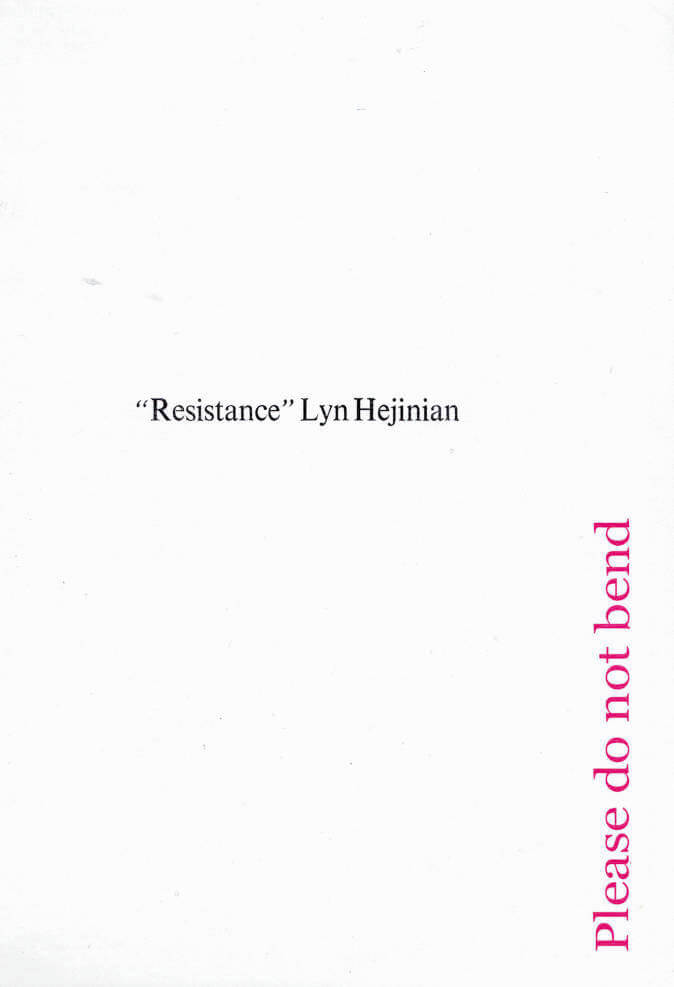
“Resistance”
Lyn Hejinian’s unpublished prose poem which (in her better-known essay The Rejection of Closure) the author reads closely as model for various, open, equitable relations between language and things (such as human bodies, as emphasised in a commentary exploring the destituent potential of Hejinian’s faltering poetic corpus, in “A Draft of Resistance” by Andrea di Serego Alighieri), in an envelope.
1. Lyn Hejinian’s unpublished prose poem which (in her better-known essay The Rejection of Closure) the author reads closely as model for various, open, equitable relations between language and things (such as human bodies, as emphasised in
2. A commentary exploring the destituent potential of Hejinian’s faltering poetic corpus, in “A Draft of Resistance” by Andrea di Serego Alighieri), in
3. An envelope.
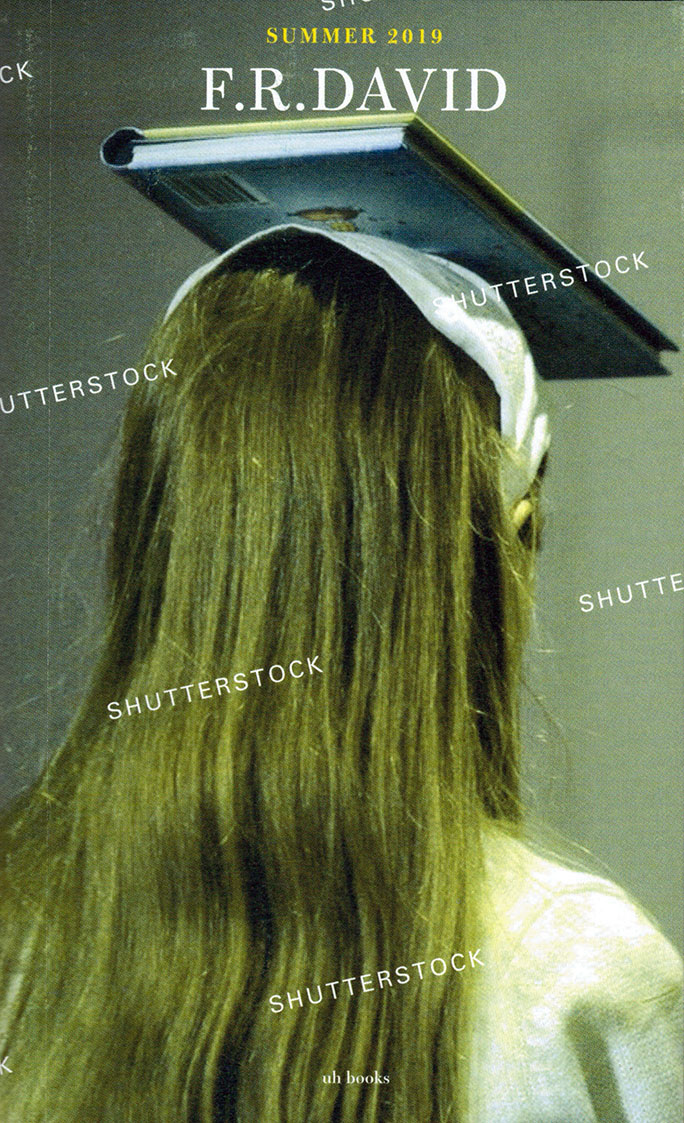
F.R. David - Recto Verso
F.R.DAVID is a typographical journal, dealing with the organisation of reading and writing in contemporary art practises. The 18th issue, “Recto Verso” is edited by Will Holder, and had its beginnings in prosody, the measure of language, geometry, and a notion of imagist transcription, even. A two-dimensional exercise, it turns out, on paper. Words were tuned out, in favour of the volume of values our bodies exchanged: “the historical and bodily movement of language amongst subjects.” Attentions turned—taking (the measure of) classes in body language: the non-verbal: the insinuated: the reverse-side of image: the backside, and, oddly: Oh no: we don’t speak about that—to the next page…
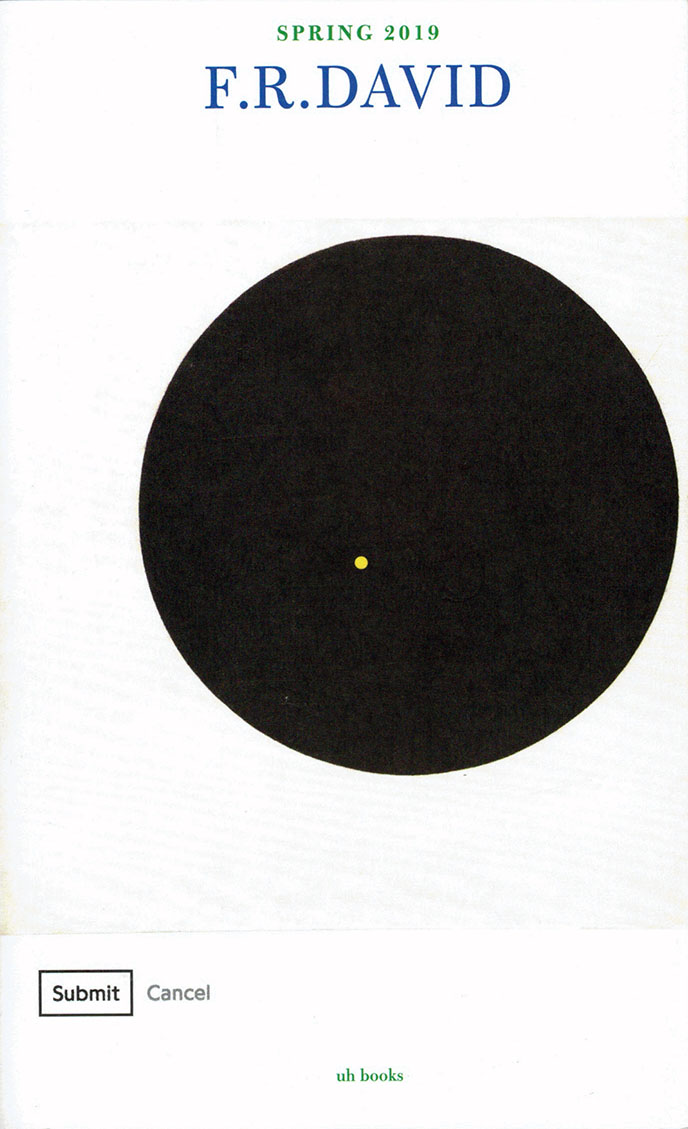
F.R. David - Black Sun
“Black Sun” the 17th issue, edited by Will Holder in conversation with Krist Gruijthuijsen, to accompany the exhibitions David Wojnarowicz Photography & Film 1978–1992, Reza Abdoh, and TIES, TALES AND TRACES. Dedicated to Frank Wagner, Independent Curator (1958–2016), at KW Institute for Contemporary Art, Berlin. The issue departs from Wojnarowicz’s grief at the loss of loved ones during the 1980s AIDS crisis, and anger at the US government for their willful neglect of this loss.
The issue assembles a chorus of various gendered and sexual positions, all seeking support, love and intimacy in linguistic, architectural and bodily structures, all the while under threat of collapse. These voices are threaded together with excerpts from Julia Kristeva’s white, feminist, psychoanalytical, semiotic Black Sun. Depression and Melancholia (1992).
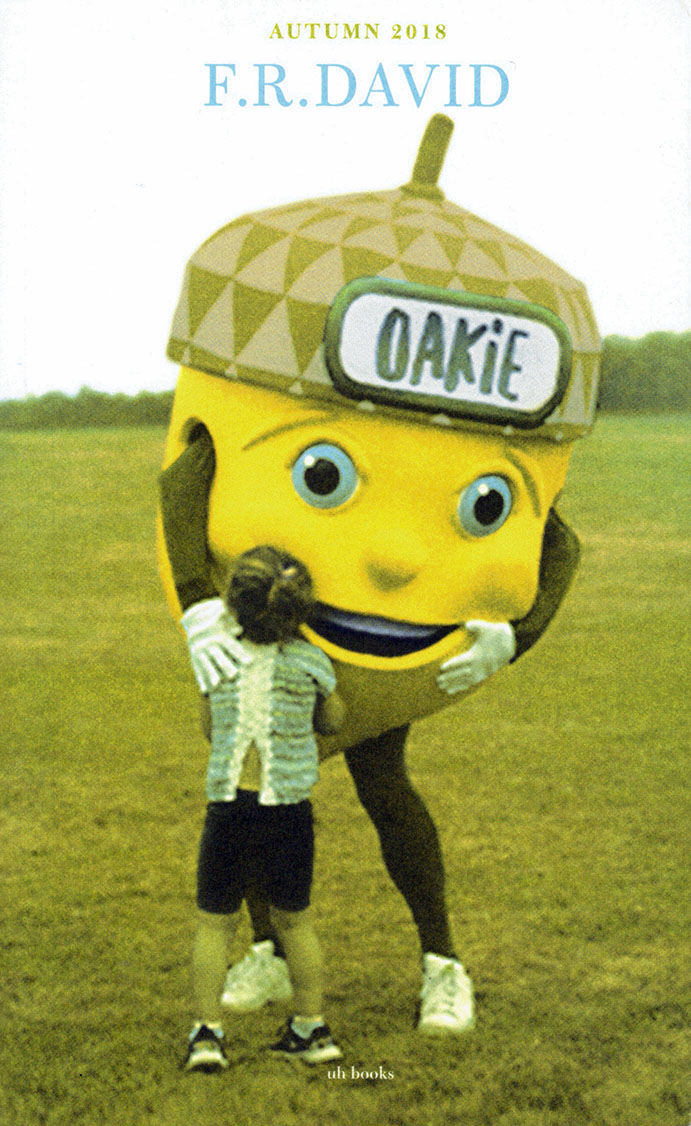
F.R. David - what I mean is—
F.R.DAVID is a typographical journal, dealing with the organisation of reading and writing in contemporary art practises. “what I mean is—” the 16th issue, edited by Will Holder.
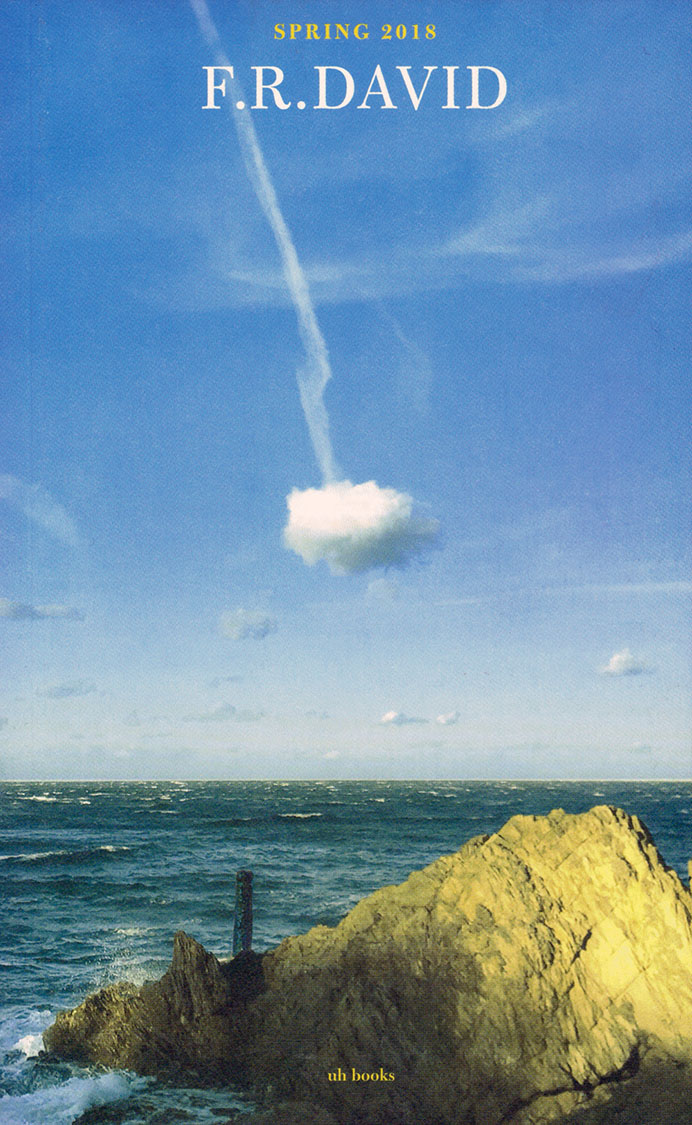
F.R. David - Flurry
F.R.DAVID is a typographical journal, dealing with the organisation of reading and writing in contemporary art practises. “Flurry” is the 15th issue (a best-of, of sorts) edited by Will Holder. “I realized very slowly over a period of time that the activity of framing a performance and the intentions that accumulate around that activity produce a certain anxious kind of mode, and I became bothered by the flurry of activity and how it tends to mask so many things.”
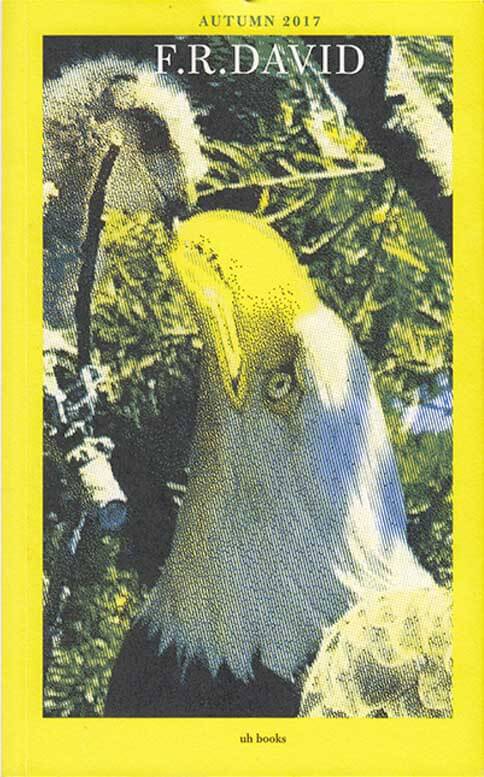
F.R. David - Recognition
“Recognition” is concerned with bodies, ecology, empathy, gazing at the world, and reading (environments) from non-anthropocentric POVs—nonetheless described and written by humans. Animals, birds, and trees feature heavily.
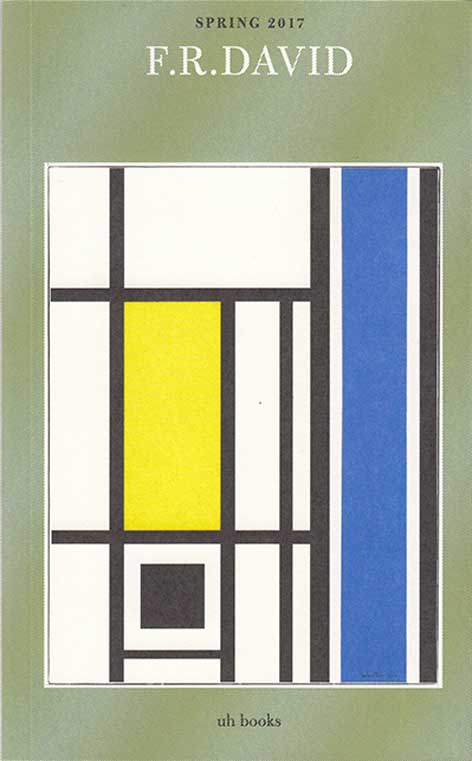
F.R. David - Inverted Commas
F.R.DAVID is a typographical journal, edited by Will Holder, dealing with the organisation of reading and writing in contemporary art practises. This 13th issue of F.R.DAVID is edited with Riet Wijnen, and has its origins in her Registry of Pseudonyms, an online database which accounts for who is who and why who is who. ‘Inverted Commas’ follows ‘pseudonym’ through names, naming, bodies, brains, self, author, other, reader, labour.
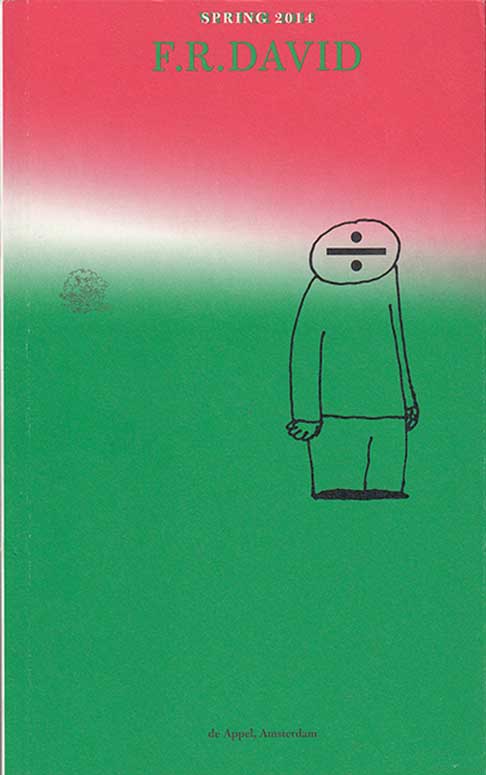
F.R. David - All distinctions are mind, by mind, of mind
F.R.DAVID is a typographical journal, dealing with the organisation of reading and writing in contemporary art practises.
This issue, “All distinctions are mind, by mind, of mind”, has a split personality, allowing comparative readings between left/ right, good/ bad, manic/ depressive.
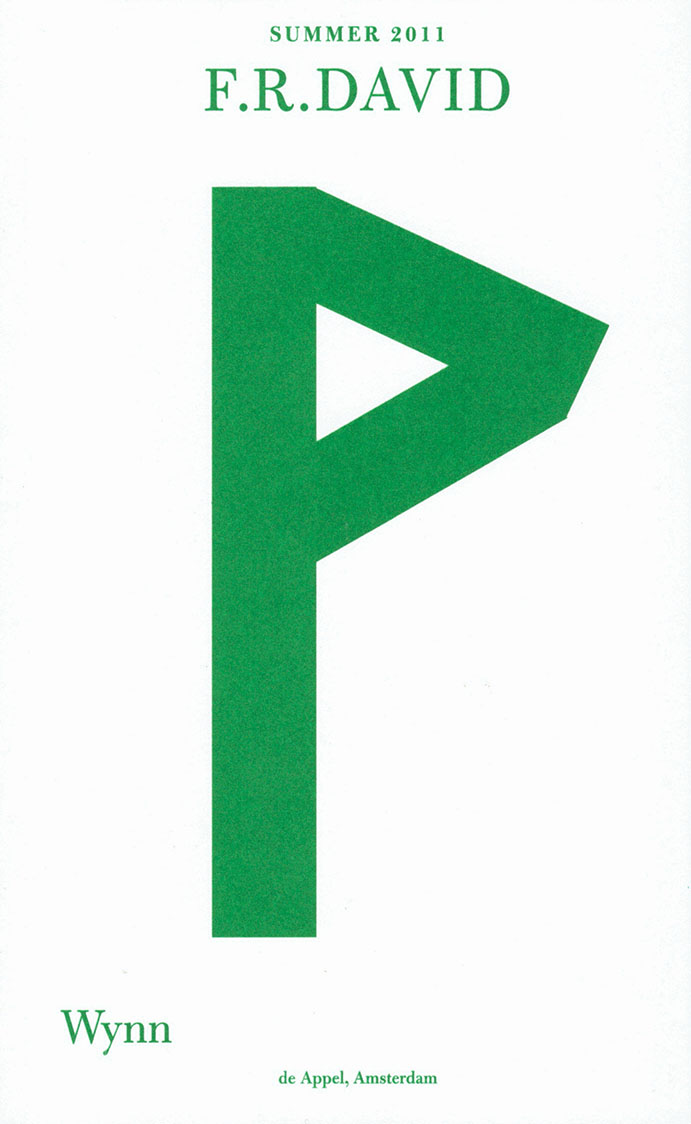
F.R. David - Spin Cycle
F.R.DAVID is a typographical journal, dealing with the organisation of reading and writing in contemporary art practises.
This issue, "Spin Cycle", is concerned with captioning, commentary and description. Edited with Mike Sperlinger.
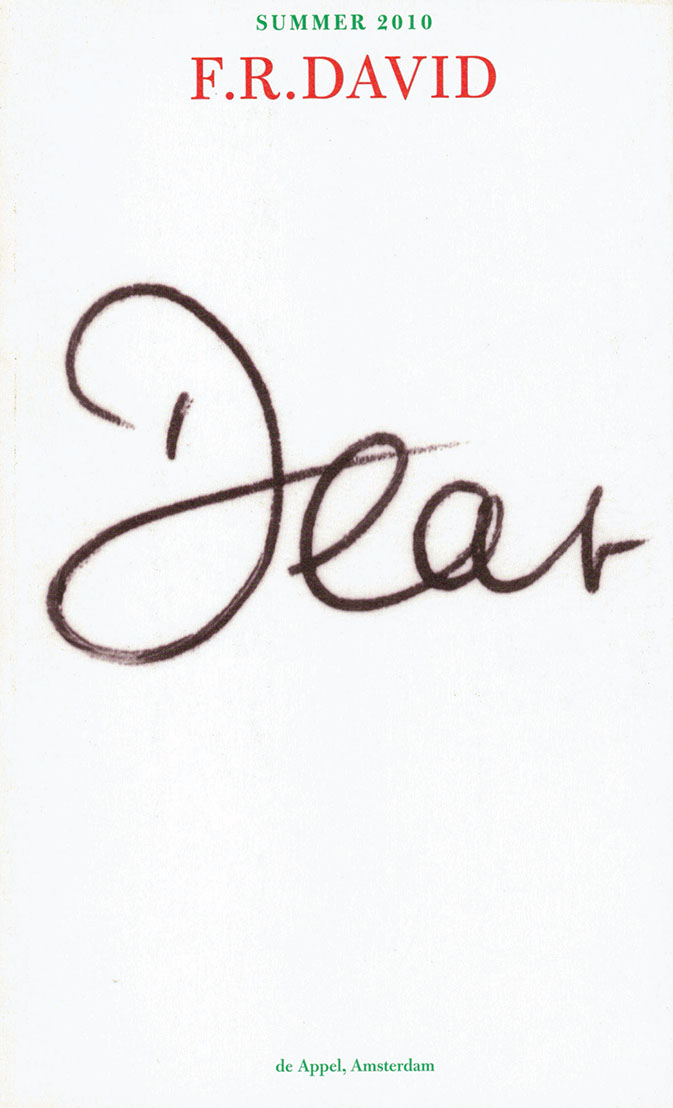
F.R. David - With Love
F.R.DAVID is a typographical journal, dealing with the organisation of reading and writing in contemporary art practises.
“With Love,” takes correspondence and calligraphy—or letter-writing—as model for information theory, and adaptive, cybernetic relations.
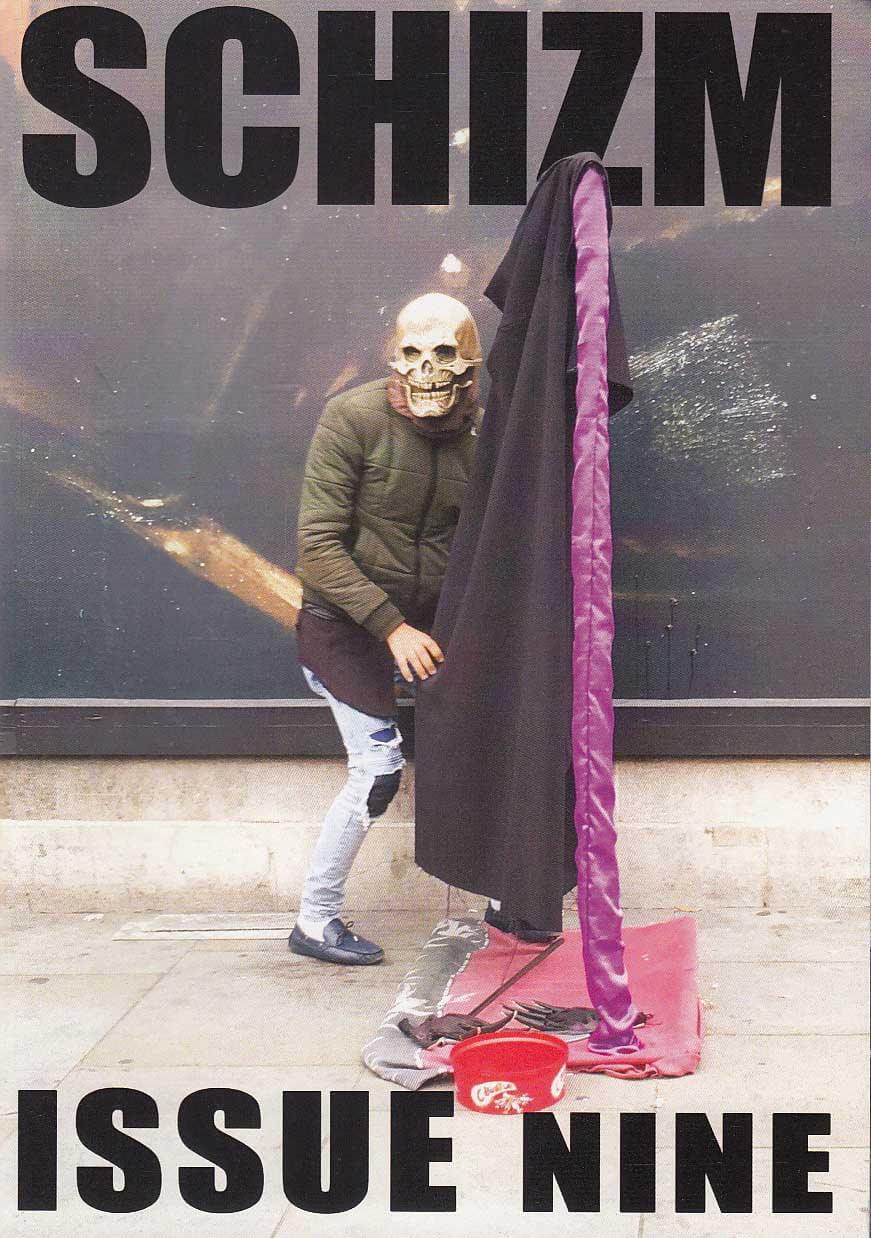
#9 Schizm Magazine
DUPLICITY (Polarisation & Truthiness) CONTRIBUTORS: Naomi Afrassiabi, Bob Ajar, Noah Angell, Sam Basu, Simona Brinkmann, Arnaud Desjardin, John Chilver, Luke Dowd, Patrick Goddard, Kathi Hofer, Catherine Hughes, Nik Jaffe, Tibor Kuo, Agata Madejska, Benja Sachau & Fiona Sarison.
Schizm Magazine invites contemporary artists and writers to contribute pages in response to a theme which, as the title implies, engages with a paradoxical idea. Each issue combines archival material with original works and texts sent in by between ten to thirty contributors.
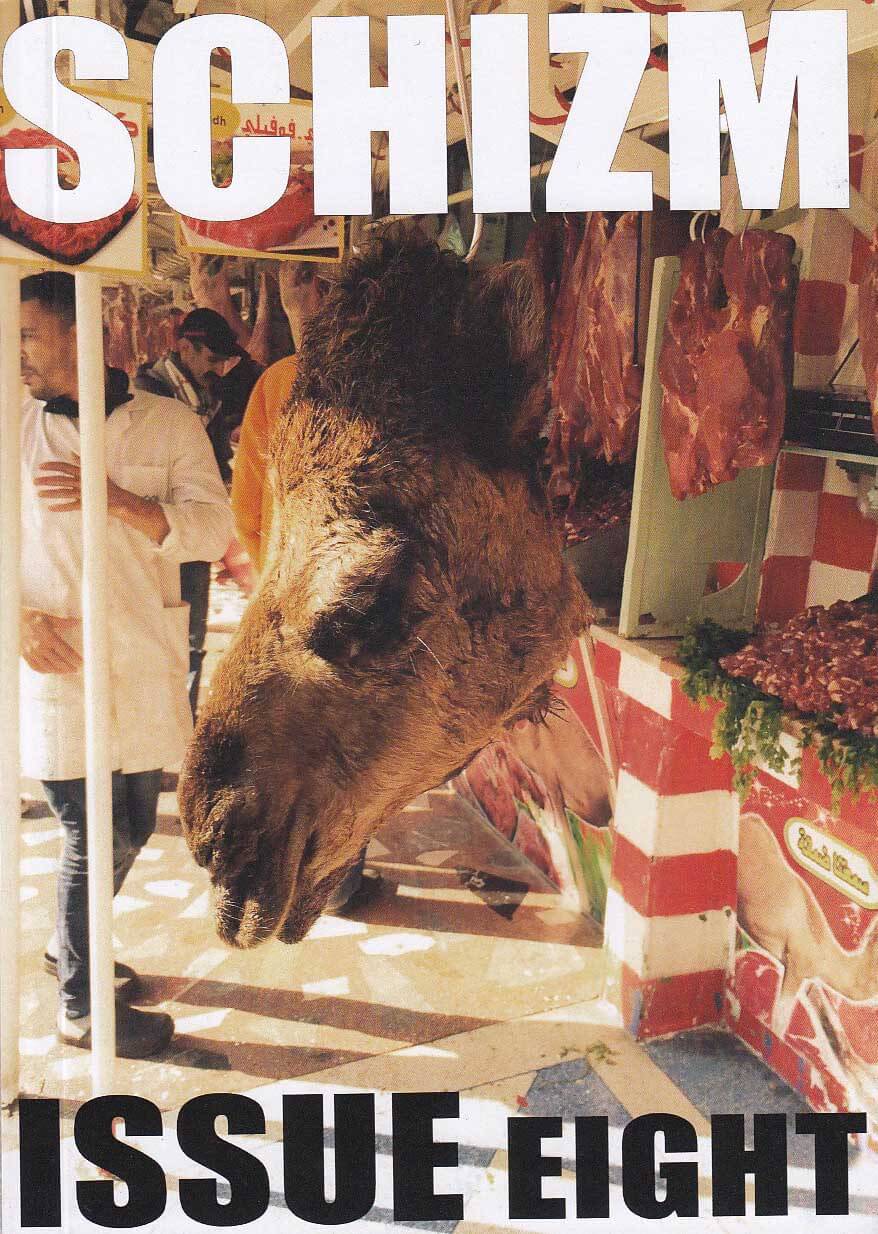
#8 Schizm Magazine
SKEPTICAL UNCERTAINTIES (false truths & honest lies)
Contributions by Bob Ajar, Pedro Diego Alvarado, Aureliano Alvarado, Sam Basu, Manuela Barczewski, Iphgenia Baal, John Chilver, Paul Philipp Heinze, Thomas Helbig, Jaakko Juhani Karhunen, Paul Johnson, George Macbeth, Christoph Meier, Sascha Mikloweit, Mocellin Pellegrini, Pages, Tomas Rydin, Adam Rompel, Fiona Sarison, Barry Sykes, Eleanor Vonne Brown, Markus Vater. Schizm Magazine invites contemporary artists and writers to contribute pages in response to a theme which, as the title implies, engages with a paradoxical idea. Each issue combines archival material with original works and texts sent in by between ten to thirty contributors.

#7 Schizm Magazine
UPWARDLY/DOWNWARDS.
Contributions by Bob Ajar (NY), Jessica Bard (NY), Sam Basu (FR), Paul Birbil (NY), David Burrows (LND), John Chilver (LND), Lisa Conrad (CA), Nina Katchadourian (NY), James Chance (MEX), Jon Kinzel (NY), Roy Kortick (NY), Emily Kuenstler (CA), Cedar Lewisohn (LND), Drea Marks (MA), Francesca Mannoni (NY), & Elizabeth Tisdale (NY).
Schizm Magazine invites contemporary artists and writers to contribute pages in response to a theme which, as the title implies, engages with a paradoxical idea. Each issue combines archival material with original works and texts sent in by between ten to thirty contributors.

#6 Schizm Magazine
ACCESS/EXCESS (coercion, proliferation & mutation)
Contributions by Bob Ajar, Maziar Afrassiabi, Sam Basu, Matt Calderwood, John Chilver, Rhys Coren, Patrick Coyle, Arnaud Desjardin, Catherine Hughes, Thomas Lock, Paul McDevitt, Sean Parfitt, Cornelius Quabeck, Chico Stockwell and Katarina Zdjelar.
Schizm Magazine invites contemporary artists and writers to contribute pages in response to a theme which, as the title implies, engages with a paradoxical idea. Each issue combines archival material with original works and texts sent in by between ten to thirty contributors.